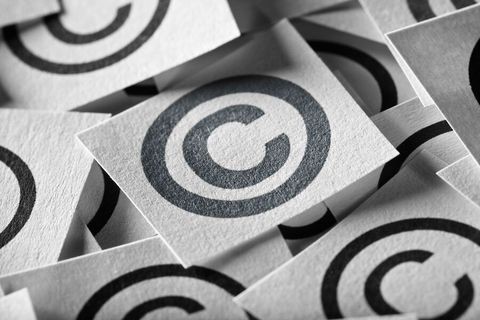Good Actors Win with the DOJ’s New Policies on Corporate Crime
Client Alert | 5 min read | 09.21.22
On September 15, 2022, Deputy Attorney General Lisa Monaco announced major updates to the Department of Justice’s (“DOJ”) criminal enforcement policy at the NYU Program on Corporate Compliance and Enforcement, following a yearlong review of the Department’s white collar enforcement practices. These updates were also documented in a 15-page memo that summarized the review conducted by the DOJ’s Corporate Crime Advisory Group. On September 20, 2022, Principal Deputy Attorney General Marshall Miller delivered a keynote address that further detailed the updates.
Rewarding Voluntary Disclosure
DAG Monaco explained that the DOJ will now consider whether a company facing potential enforcement action has been a good actor; that is, whether the company proactively reported and remediated misconduct. Importantly, going forward, it will be the DOJ’s policy that absent aggravating factors, it will not seek a guilty plea when a company has voluntarily self-reported, cooperated, and remediated misconduct. In addition, the DOJ will not seek an independent compliance monitor where the company has implemented and tested an effective internal compliance program at the time of the resolution. And, DOJ will take a more affirmative role and “monitor the monitor” in order to keep them “on task and on budget.”
During her speech, DAG Monaco explained that the DOJ’s goal is for every component of the DOJ to “reward those companies whose historical investments in compliance enable voluntary self-disclose and to incentivize other companies to make the same investments going forward.” The DOJ also seeks to empower “chief compliance officers, general counsels, and other [to] make the case in the boardroom that voluntary self-disclosure is a good business decision.”
Individual Accountability
The policy affirms DOJ’s oft-stated “top priority” to fighting corporate crime: hold individuals accountable. DAG Monaco noted that undue or intentional delay in producing documents, including those that show individual culpability, will result in a denial of cooperation credit. In other words, it is no longer enough to disclose a bad act. Corporate cooperators now must identify everyone involved in the act and they must do it quickly. DAG Monaco noted during her speech Thursday that DOJ prosecutors would work to conclude investigations and bring warranted criminal charges against individuals prior to or at the same time as it takes actions against a company. This creates a timing conundrum for a company that needs to demonstrate an effective compliance program at the time of resolution to avoid a monitor, but also needs to “notify the prosecutors” when it “discovers hot documents” to maximize cooperation credit by enabling the DOJ to quickly charge individuals.
History of Misconduct
Another earlier measure directed the DOJ to consider a company’s prior misconduct and remediation when determining the proper resolution for a misdeed. When the policy was first announced, DAG Monaco described the directive as “harmoniz[ing] the way [the DOJ] treats corporate and individual criminal histories.” DAG Monaco clarified that the recency and nature and circumstances of a prior bad act, including whether it “shared a root cause as the current misconduct,” will be evaluated by the DOJ in determining an appropriate resolution. She effectively ranked prior misconduct as being most relevant when involving: (i) a criminal resolution in U.S.; (ii) the same personnel or management; and (iii) a criminal resolution within 10 years and a civil or regulatory resolution within five.
Significantly, DAG Monaco also announced that DOJ would make it harder for companies to receive multiple or successive deferred prosecution agreements (“DPAs”) or non-prosecution agreements (“NPAs”) and require prosecutors to secure prior written approval from senior DOJ officials before making an offer for a successive DPA or NPA. However, the memorandum did acknowledge that repeat DPAs or NPAs may still be appropriate where the matters involve substantially different misconduct, or as a way to reward a company that self-reported new conduct.
In his speech, PDAG Miller clarified that the DOJ’s policy is not intended to deter companies from acquiring others, even when the acquired company has a history of misconduct. Stressing the importance of careful pre-acquisition diligence and post-acquisition remediation of misconduct, PDAG Miller noted that the Criminal Division has declined to take enforcement action against companies that quickly self-report misconduct discovered during a merger or acquisition. Going forward, the DOJ will apply that approach Department-wide.
Corporate Culture
Through these policies, the DOJ is incentivizing companies to maintain strong compliance cultures. DAG Monaco noted positive trends in the way in which companies are encouraging employee adherence to strong corporate values, including by building compensation programs that reward compliance-promoting behavior. She also highlighted companies that employ clawback provisions and other initiatives as deterrence measures to hold individuals financially accountable. Going forward, the Department will consider these sorts of practices in evaluating a company’s compliance program.
Personal Device Business Communications
On Tuesday, PDAG Miller added that companies will be expected to crack down on the use of personal devices and third-party messaging platforms for business purposes. Going forward, companies will need to develop robust policies to prevent circumvention of compliance protocols through the use of personal devices, including by implementing ways of preserving key business data and communications that occur on employees’ personal devices to facilitate production to the government during investigations. A company’s policies and procedures addressing the use of personal devices will also be considered during the DOJ’s evaluation of the company’s compliance program. This follows an industry-wide Securities and Exchange Commission (“SEC”) investigation focusing on the use of personal devices and “off channel” communications in the financial services industry.
Takeaways
The latest policies announced by DAG Monaco, coupled with her announcement that the DOJ is requesting $250 million for future corporate crime initiatives, indicate that the DOJ’s increased focus on punishing and preventing white collar crime is here to stay. This pronouncement highlights proactive steps companies can take to avoid criminal culpability, even when misconduct occurs, while also creating timing dilemmas for companies that do not have an existing, effective compliance program. More than ever, developing strong compliance practices, emphasizing the leadership role of the Chief Compliance Officer, creating cultures that reward responsible and ethical company actors, and self-reporting will be key to achieving optimal resolutions with DOJ when misconduct occurs.
Insights
Client Alert | 2 min read | 04.17.25
Will the Supreme Court review the Ninth Circuit’s unique Server Test for online copyright infringement? After the Ninth Circuit recently affirmed the Server Test, a photographer and copyright owner has requested certiorari. Petitioner-Plaintiff, Elliot McGucken, is a landscape photographer. Respondent-Defendant, Valnet, Inc., is the owner of a travel website located at “www.thetravel.com.” McGucken sued Valnet for copyright infringement when Valnet embedded on its site a number of links to McGucken’s Instagram posts. The district court, bound by the Ninth Circuit’s en banc decision in Perfect 10, granted Defendant’s motion to dismiss, finding that the Server Test foreclosed McGucken’s direct infringement claim as a matter of law, because Valnet linked to the images and did not store them on its own servers. The Ninth Circuit affirmed in a panel decision. McGucken now requests the Supreme Court to review the validity of the Server Test, which is unique to the Ninth Circuit.
Client Alert | 5 min read | 04.15.25
Is Section 230 Going to Change? The FTC, DOJ and FCC Signal Significant Change for Online Businesses
Client Alert | 4 min read | 04.14.25
Client Alert | 4 min read | 04.10.25
Hikma and Amici Curiae Ask Supreme Court to Revisit Induced Infringement by Generic “Skinny Labels”




